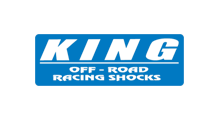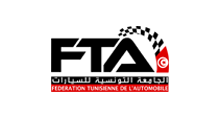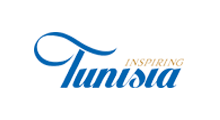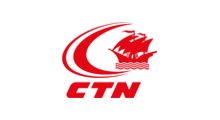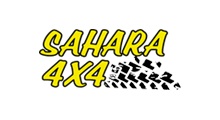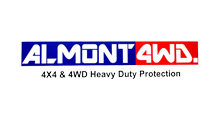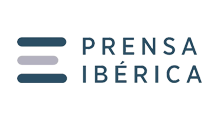FAQ’s
First time in Tunisia? First time on a raid? Don’t worry, we know about all the questions you will have.
Here you can find answers to the questions people most frequently ask before they take part in the Tunisie Challenge. If your question isn’t here then contact us at info@tunisiechallenge.com and we will answer it for you.
HOW TO TAKE PART
Yes, and for safety reasons a maximum of 4 persons is allowed per vehicle.
4×2 and 4×4 cars, SUV and Offroaders can participate. Pilots and copilots must be over eighteen to participate.
DOCUMENTATION
This is very important: all vehicles must submit the registration certificate and green card insurance to the Tunisian border controls, and VERY IMPORTANT, if the vehicle doesn’t pertain to any member present then you must have written permission from the owner of the vehicle with a notary’s validation.
No visa is required to visit Tunisia as a European citizen, just bring your passport.
ACCOMMODATION + FERRY
Maroc logistics are managed by an external company: Sports Adventure.
Through this company you may reserve official accommodation both for hotels and campsites.
In order to achieve a more competitive price, Sports Adventure is in charge of purchasing tickets for all participants.
Places on the Ferry are always available for our participants, regardless of when you make your registration. Ticket Payment is completed a few weeks before boarding.
VEHICLE + DRIVING
The terrain can often change even during the same stage. Before each stage there will be a briefing with detailed information about terrain and recommendations for each stage.
The event takes you through places where the tracks are in really bad shape or are even non-existent, this could be complicated for your vehicle, but you must remember that locals take these roads on a daily basis with all kinds of vans, cars and bikes, generally in much worse condition than yours.
You can keep it to participate in subsequent editions of the Tunisie Challenge! Or if you prefer to sell it after the competition we have a special section on the Facebook gruop for you to put it on sale, there may be future participants who are interested in your car.
Preparation is up to you and aims to improve your vehicle’s resistance over rough terrain while respecting safety standards required by the Highway Code.
At present we find all kinds of preparations in participants’ vehicles, from very professional and expensive adaptations to practically standard vehicles.
Vehicles are grouped by categories depending on their displacement,
There are editions, however, in which some categories have much more participation than others and vice versa.
Of course, there is an essential minimum of modifications to guarantee vehicle safety.
For 4×2 or 4×4 utility vehicles:
- Protection for the sump and fuel hoses will most probably be necessary.
- Increasing ground clearance by means of reinforced springs and increasing spring diameter or adding extensions.
- If possible, increase ground clearance with higher tires than the original ones.
- Vehicles must have all necessary permits to be allowed on public roads.
For off-road vehicles:
For this type of vehicle there is no recommended minimum preparation, but:
- A sump guard is always a recommendable precaution.
- Tires must be in good general condition and have a decent tread.
As a rough guide we indicate some problems that you may expect:
- Air filter
- Shocks
- Alternator belt
- General Fasteners & bolts
- Relays and fuses
- Engine oil
- Housing Sealant and duct repair tape
- Duct tape
- Sand plates or such like
Yes, but we recommend filling up whenever possible. The next station may be closed or have run out of gas. It happens…
The best solution is prevention. Safety is a priority in the Tunisie Challenge and regulations are very strict, especially regarding speed. Teams that don’t comply with the event’s guidelines, regulations and safety standards will be severely penalized.
All vehicles will be equipped with the STELLA III security system, used in such events as the American Bajas or national championships, provides the same benefits as the Iritrack system used in the Dakar.
Stella III installation will take place during technical checks. This system allows the organization to pinpoint each vehicle’s location in real time along each stage. It also offers participants the possibility of requesting both mechanical or medical assistance.
The event’s route runs through deserted and sparsely inhabited areas, which is why the Tunisie Challenge organization provides rescue vehicles in case of a breakdown or accident. These vehicles with medical and health personnel are strategically placed at the head, middle and tail of the stage’s route.
Again, the best cure is prevention. We insist that the Tunisie Challenge is NOT a speed event. This is a fun adventure to learn and enjoy. Good navigation, driving expertise, caring for your vehicle’s mechanics, and consistency are the true keys to success.
It is very important to follow all recommendations and comply with the event’s safety standards. For your own safety, the safety of other participants and the local population.
In the event of an accident, Tunisie Challenge has its own medical assistance, in the event of an emergency STELLA III must be activated and the closest organization medical vehicle will take care of assistance.
It is important to keep in mind that depending on the medical vehicle’s position it can take between a few minutes and several hours to access your vehicle. So once again:
PRUDENCE AND RESPECT TOWARD THE REST OF PARTICIPANTS AND ESPECIALLY TOWARDS THE LOCAL POPULATION.
NAVIGATION
Off road navigation has nothing to do with road navigation. A road GPS navigator does not allow you to enter coordinates, tracks, or waypoints, so you will not be able to use the standard GPS utility vehicles incorporate to participate in the Tunisie Challenge.
If you do not have a navigator, you must buy a traditional GPS (GARMIN). Click here to see models.
You can also use your SmartPhone (preferably large screen) or Tablet (preferably 7 inches) as long as they have built-in GPS. For these systems you can use two types of navigation software, TwoNav or OruxMaps.
The track is what we give you to be able to follow the route determined by the organization, this route will indicate all relevant information, such as waypoints, goals, gas stations, and places where you can eat or buy food, bivouacs, hotels, etc.
Before starting the event we will also give you a dossier with information on certain rules of behaviour, road conditions, potential difficulties and issues and local emergency numbers.
Yes, if you wish to be in the classification you must pass through the stipulated waypoints, plus there is a back-up vehicle to help participants if necessary.
HEALTH
We recommend you carry a medical kit with:
- Aspirin, paracetamol or similar.
- Anti-inflamatory drugs.
- Mosquito Spray.
- High factor sunscreen.
- Scissors.
- Eye drops.
- Anti-diarrhoea pills.
- Lip balm.
- Thermometer.
- Disinfectant.
- Dressings, plasters, bandages.
- Any other medicine you may need
